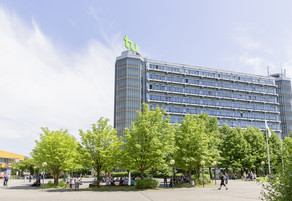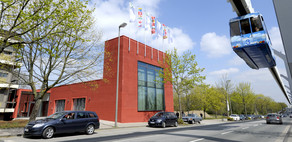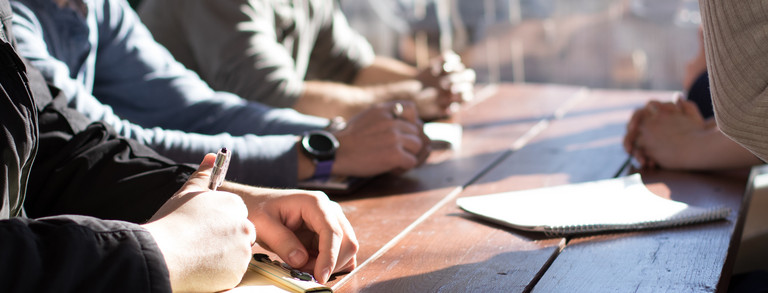Internships for international students
With an internship, you can gain initial professional experience during your studies and get to know potential fields of activity and employers. The acquired practical experience and the learned skills can facilitate professional orientation and often also the start of a career.
Good to know: Formal requirements and regulations
In the case of voluntary internships, the objectives, content and duration are determined in consultation with the respective provider of the internship. There are no special requirements by the university.
Legal requirements:
The same legal regulations apply to voluntary internships as to student part-time jobs. Those who are not from the European Union (EU) or the European Economic Area (EEA) may work a total of 140 full days or 280 half days per year (since 01 March 2024). This is noted in the (supplementary sheet to your) residence title. The internship counts as regular work, even if it is unpaid. If the quantity of these mentioned days is exceeded, permission from the Foreigners' Registration Office and the Employment Agency is required for the internship. Compulsory internships are exempt from this rule.
Please inform yourself at an early stage at the local Foreigners' Registration Office and the Employment Agency. You can find more information on the legal regulations for student part-time jobs here.
In many degree programs, internships are mandatory during the course of study. Whether there is a compulsory internship in a degree program, and which criteria must be met for recognition, can be found in the corresponding examination/study regulations or the module handbook of the according degree program.
Compulsory internships (both paid and unpaid) that are a required part of the degree program do not require approval from the Foreigners' Registration Office or the Employment Agency. The same applies to the preparation of final theses in the company. The approval-free 140 full or 280 half working days are not affected by this and can be made use of in addition.
Note: The statutory minimum wage also applies to all students. It does not apply to compulsory internships and internships lasting less than three months.
Study-related internships of international students may last up to 12 months in Germany. These 12 months do not have to be completed in one go, but can be split and distributed over the entire duration of the studies.
If you are a student with citizenship in the EU/EEA countries/Switzerland and have a part-time student job or a paid internship in Germany, you must take out health insurance in Germany. Your European Health Insurance Card (EHIC) is then no longer valid. There are rare exceptions to this – more information is available from the health insurance company.
From a company perspective: Internships in Germany
How do I find an internship and what should I bear in mind during the process? What is expected of me as an intern when I start at a company? We asked Jasmin Hein, Head of HR at the “Die Netzwerkpartner”, these and other questions.
In this interview, you can read about what you should consider from a company's point of view in order to organize your internship in the best possible way:
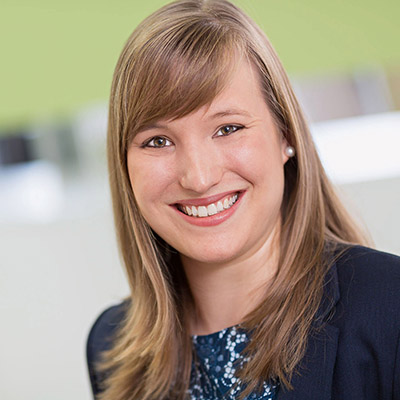
Which tips would you give a student who is looking for an internship at a company during their studies?
Jasmin Hein: First of all, internships are often not advertised - but that doesn't mean that internships at these companies are not possible. My tip would be to look for job postings for working student jobs [in German: Werkstudententätigkeit or Werkstudentenstelle), as the activities are often similar in terms of the thematic focus. In addition, it is absolutely normal to apply for an internship on your own initiative, i.e., without reference to a job posting.
If I wish to apply for an internship, what is the best way to make contact?
JH: The best way is to go to the company's website and look for the right contact person on the careers or HR pages. Personally, I find it advantageous to enter into a direct dialog with interested parties through personal contact. At the same time, we welcome any method of communication - whether by telephone or e-mail.
If you choose to establish contact via e-mail, it is important that you only write to one person: If I find four colleagues in the Human Resources team on the website, I should choose a suitable person to contact and not send the same e-mail to many or all team members. For functional addresses (such as personal@...), it is also sufficient to use only these, as it is then processed internally.
It is also normal not to receive a response to your e-mail within 24 hours. It does not leave a good impression if you follow up a few hours after sending an e-mail. As a rough guide, it is perfectly okay to get in touch if you have not heard anything for three days.
Which documents should I send?
JH: A short CV - i.e., one page - with the most important stages is sufficient. If you are applying as an intern, a classic letter of motivation is no longer necessary - however, if you wish to stand out and improve your chances, it is well received if you can establish a relationship with the company, i.e., explain why our company is of particular interest to the students. In our case, for example, this would be the contact with municipal utilities.
Certificates do not have to be sent, but you can attach them if a certain qualification is suitable for the internship. However, the references should then be written in German or English.
A photo is no longer a must nowadays, but we have also included our portraits on our website, as we work together as people. If you decide to send a photo, it should definitely be a reputable one and not one from a vacation or something similar.
You should also state your language skills - be honest here. The level of German does not have to be perfect, but it is often difficult to integrate interns who have no knowledge of German in medium-sized companies. The contact details should also be up-to-date so that we can reach the candidates.
Suppose I would like to do an internship lasting several weeks at Netzwerkpartner: What lead time should I allow for the application?
JH: It is sufficient to apply one or two months in advance. It also makes sense to state in the documents when the internship should ideally start and how long it should last.
What is my role as an intern?
JH: As an intern, you can expect to get to know the work processes and the day-to-day running of the company. In terms of content, this is comparable to the spectrum of a working student job. In our company, working students and interns have tasks in the area of content maintenance in the back end, for example, they carry out research activities and are involved in projects on various topics in the energy industry. This gives them a good insight into the day-to-day work of their colleagues.
At the end, you receive an internship certificate summarizing your activities. If a particular area of work was important to you - for example, working with software - you can also ask for this to be included in the reference.
What do you expect from interns?
JH: These are primarily personal qualities, such as an open-minded and communicative manner. It is also positive if they have a digital affinity and a certain openness to the culture in our company, e.g., in terms of being on first-name terms. If they also have a hands-on mentality and a willingness to help, the interns will fit in very well with us.
Thank you very much for the interview!
Finding an internship
- stellenwerk Dortmund: The university job portal
- AStA TU Dortmund: Job and housing exchange (DE)
- International Office: Internship abroad
- Dortmund at work: Internship information and positions (DE)
- UNICUM Karrierezentrum: Internship Exchange (DE)
- Federal Employment Agency: Internship Search (DE)
- Berufsstart: Job exchange for graduates and interns (DE)
- Jobware: Internship Search (DE)
- indeed: Internship Search (DE)
- Stepstone: Internship Search (DE)
- Jobs.de: Internship Search (DE)
- absolventa: Internship Search (DE)
- jooble: Internship Search (DE)
- zutun: Job portal with internship search (DE)
- Praktikum.de (DE)
- MeinPraktikum.de (DE)
- praktikum.info (DE)
- praktika.de (DE)
- Praktikum-Service.de (DE)
- ALG: Internship exchange for the arts and humanities (DE)
- academics: Internship in science & research (DE)
- ResearchGate: Internship search
- International Office: International Career Fair
Please note that this list of contact points is only an exemplary selection and does not claim to be complete.
An internship on site during the pandemic
Eleonora S. was a student at the Ruhr University Bochum and at the same time a research assistant at TU Dortmund University. In this article, she reports on her personal experience of completing a five-month internship on site in 2021 during the Covid pandemic.
Where did you do your internship?
In a globally represented cultural institute, the Goethe-Institut, in Budapest, Hungary.
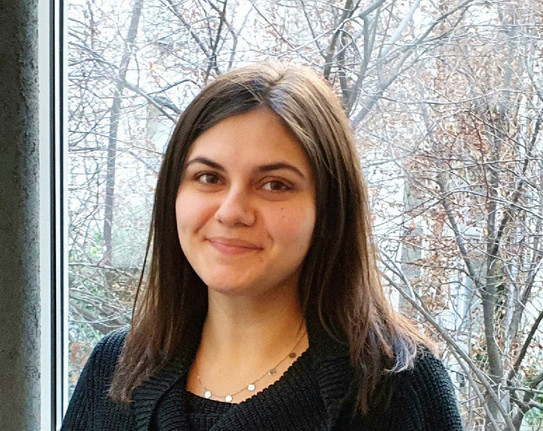
Why did you choose exactly this internship?
I voluntarily chose to do my compulsory internship abroad, extending the duration of the internship, so that I could develop professionally in the best possible way during this time. For five months I worked there, 40 hours a week. This work rhythm helped me to imagine how the working life could look like in the near future.
How did you find the internship? Did you prepare yourself in some special way for the application?
I registered with stellenwerk Dortmund for an application document check. There I not only had the chance to have my application documents reviewed, but I also received a lot of practical tips and information from the responsible contact person. The input from stellenwerk Dortmund made my decision easier and more goal-oriented, and I applied to the cultural institute well prepared.
How did the pandemic affect your internship? Were there any restrictions?
My internship started in the fall of 2021. Initially, I worked on site at the institute, but as the Covid situation worsened, I increasingly worked from home. However, with the help of various weekly online meetings, it was possible to maintain good contact and a pleasant working atmosphere.
What do you take away from your internship?
I learned how important it is to be able to exchange ideas with our fellow human beings and interact with each other. After about a year and a half of working from home, I noticed not only in myself but also in my colleagues at the institute that meetings in presence were more valued. For me, the initial work on site in the office was a great motivation and refreshment.
But the most important insight is that nowadays it is possible to work well together, get to know each other and even make friends via digital channels and online meetings. Digital work also makes it possible - professionally and privately - to grow, develop and learn from colleagues.
Thank you very much, Eleonora!







